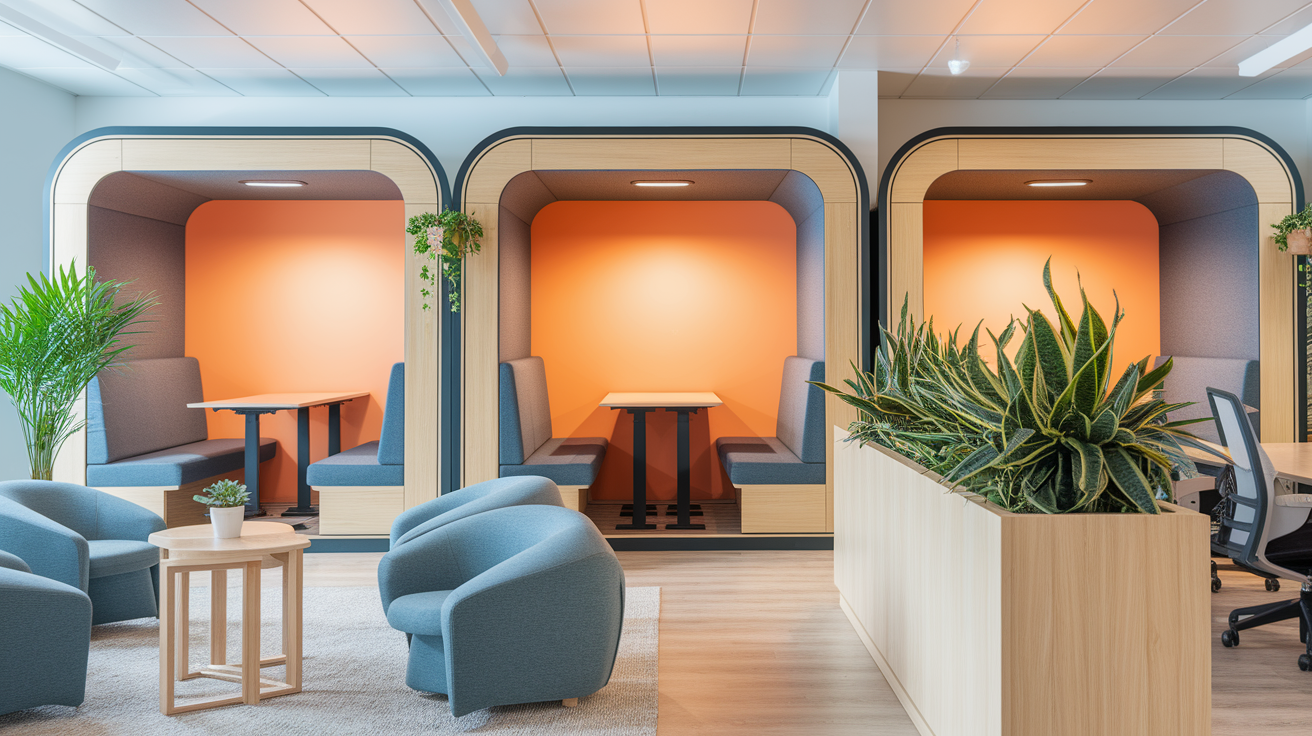Reimagining the office: designing for All Kinds of Minds
Apr 25, 2025
As hybrid and remote working evolve, the return to the office brings a question every organisation must answer: what kind of environment actually helps people do their best work?
For some, it’s the shared energy of in-person collaboration. For others, the noise, unpredictability or intensity of a traditional office space can feel exhausting or inaccessible.
If we want to create workplaces that truly work, we need to design them to fit the full range of human minds.
It’s not about offering perks. It’s about rethinking what a workplace can be.
What is neurodiversity — and why does it matter?
Neurodiversity refers to the natural variation in how people think, process, feel, and experience the world.
It’s not a problem to be fixed, it’s a reality to be recognised.
Cognitive diversity shows up in how we focus, solve problems, communicate and create. When workplaces embrace these differences, they unlock richer ideas, stronger performance, and teams that are more adaptable, resilient, and engaged.
Why the old model no longer fits
For too long, office design has followed one narrow formula: open-plan spaces, harsh lighting, constant buzz, fixed routines. These choices may seem neutral, but they’re not. They were built with a particular kind of brain in mind.
For neurodivergent individuals, including those with ADHD, autism, dyslexia or sensory sensitivities, these environments can feel overwhelming, disorientating or draining.
This isn’t about special treatment.
It’s about stopping the unintentional exclusion that’s become normalised.

Four ways to design for all kinds of minds
Creating a neuroinclusive workplace doesn’t mean starting over. It means being intentional, about space, about systems, and about people.
Here’s where to start:
1. design spaces that support focus and comfort
- offer a mix of quiet zones, calm corners, and flexible seating
- reduce sensory overload — think soft lighting, natural materials, acoustic balance
- provide options for autonomy: noise-cancelling headphones, standing desks, breakout pods
Small changes to the physical environment can create big shifts in wellbeing and performance.
2. rethink rigid schedules
Not every brain runs best from 9 to 5. Flexible hours, hybrid models, and trust-based outputs give people space to work when they work best, whether they’re early birds, deep thinkers, or jugglers of life.
It’s not about working less.
It’s about working better.
3. lead with strengths
When roles are designed around what people naturally do well, problem-solving, pattern recognition, relationship-building, detail or vision, they thrive.
So does your business.
Strengths-based thinking leads to higher engagement, lower turnover, and teams that feel energised, not exhausted.
4. build trust and openness
Psychological safety isn’t a bonus, it’s the bedrock.
When people feel safe to ask for what they need, they’re more likely to collaborate, contribute ideas, and stay.
Inclusive leadership isn’t about having all the answers.
It’s about listening with curiosity, and responding with care.
Returning doesn’t mean reverting
The future of work isn’t about going back to what we had.
It’s about moving forward, together, with intention and insight.
Designing for neurodiversity doesn’t just make work better for some.
It makes it better for everyone.
Our practical, people-first approach
At the neurovision group, we help organisations move from intention to action through a practical framework built around:
people – how we lead, listen, and support
process – how we build flexible systems that meet real needs
place – how we design spaces that support clarity, safety, and flow
Let’s shape spaces where all minds can succeed
If you’re ready to rethink how your workplace supports different ways of working, we’d love to help.
Our All Kinds of Minds inclusion audit uncovers hidden barriers and highlights opportunities for real, lasting change, so you can build a workplace where every person has the chance to do their best work.
Because when we flex for difference, we unlock brilliance.
People. Process. Place.

